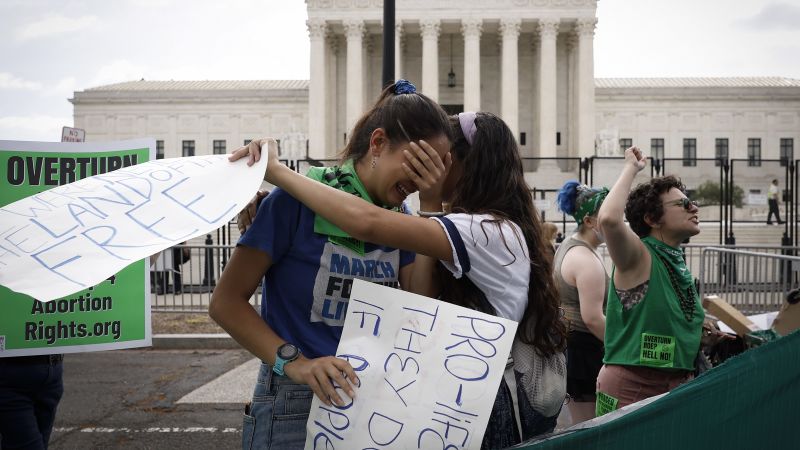
When the Supreme Court overturned Roe v. Wade, it opened the floodgates for abortion-related lawsuits
CNN
The Supreme Court on Tuesday will hear its first abortion case since the 2022 reversal of Roe v. Wade and upheaval of reproductive rights in America.
The Supreme Court on Tuesday will hear its first abortion case since the 2022 reversal of Roe v. Wade and upheaval of reproductive rights in America. Consider how much the justices’ decision has changed the country: Fourteen states now have total bans and seven others have imposed substantial restrictions on access to abortion. Some states that ban abortion are trying to keep abortion medication from crossing their borders and, separately, are seeking to block a federal law that allows emergency room physicians to terminate a pregnancy if medically necessary. And an Alabama Supreme Court decision impinging on in vitro fertilization – a method used to produce, not end, pregnancy – was traced by critics, including President Joe Biden, to the Supreme Court’s erosion of a woman’s right to privacy in its overturning of Roe. On the political front, abortion has catapulted to the top of election-year issues, with Democrats hoping public concern for restrictions continues to help their candidates; Republican presidential candidate Donald Trump has recently floated the idea of a nationwide ban on abortion at 15 weeks of pregnancy.













